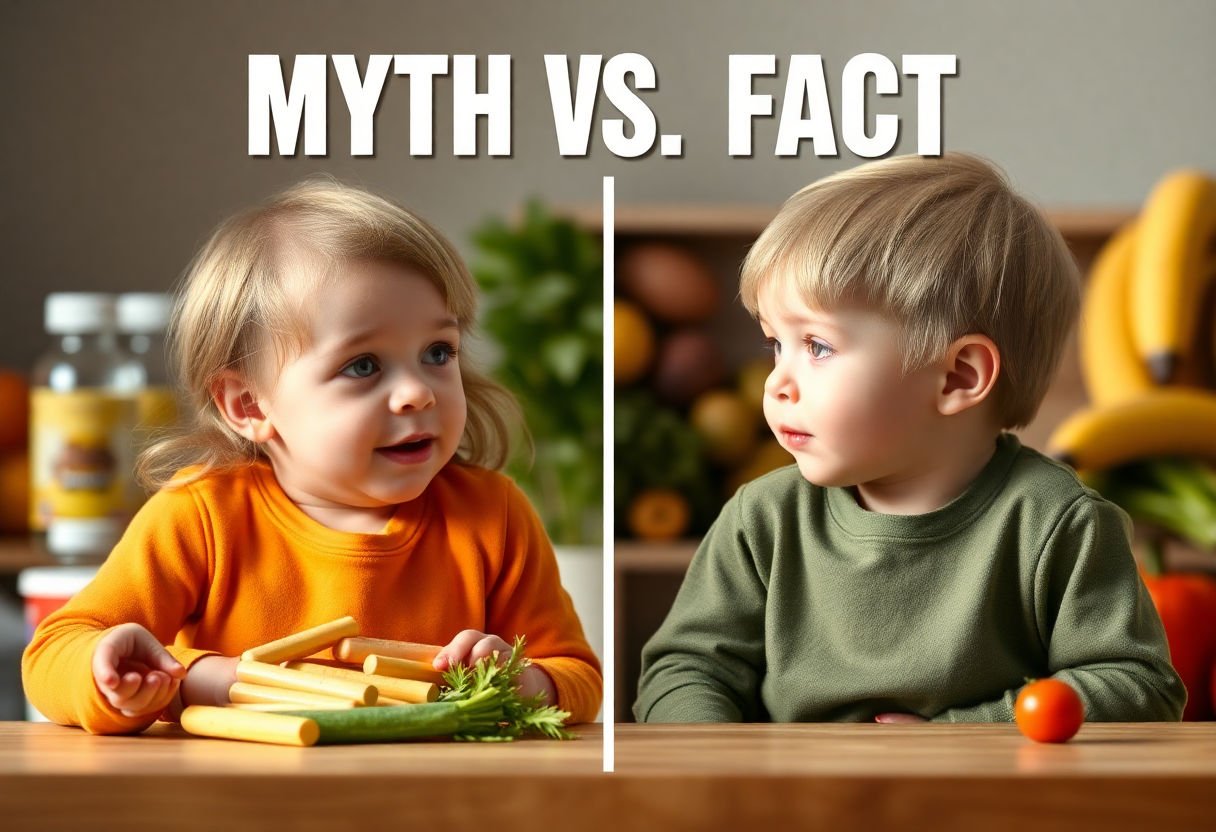Vitamins play a big role in helping kids grow strong and healthy. Methylated vitamins offer extra benefits because they are easier for the body to use. In this guide, you will learn why these vitamins matter. You will find out how to pick the right ones for your child. You will also learn about some myths people believe about vitamins. Plus, discover important tips for making sure your child gets the vitamins they need. Stay with us as we explore the best ways to support your child’s growth. Every detail counts in choosing the best.
Key Takeaways
-
Methylated vitamins help your child’s body use nutrients better for growth.
-
Always talk to a healthcare provider before starting any new vitamin.
-
Pay attention to your child’s age, diet, and health when picking vitamins.
-
Look for high-quality supplements to ensure safety and effectiveness.
-
Keep track of how your child responds to vitamins and make changes if needed.
Understanding Methylated Vitamins
Methylated vitamins might sound complex, but they are nutrients that our bodies can use right away. Methylation is a fancy name for a process that makes vitamins ready for action. Imagine trying to open a can. Regular vitamins are like cans without a pull-tab. Methylated vitamins come with the pull-tab, making them easy to open.
Why does this matter? Some people, including kids, have bodies that struggle to “open” the vitamin can. Age, genetics, or health can make this hard. Methylated vitamins help by arriving “pre-opened.”
Common methylated vitamins include:
- Methylfolate (a form of B9)
- Methylcobalamin (a form of B12)
These forms can make a big difference in health, especially for children. Methylfolate supports brain health and mood. Methylcobalamin helps create red blood cells and keeps nerves working well.
Parents should know if their child needs these types of vitamins. Some kids get all the vitamins they need from food. Others might need a little help from supplements. Talking with a doctor can guide parents to the right choice.
In a nutshell, methylated vitamins are like ready-to-use aid. They make sure your child gets the most out of each nutrient for growth and development. Don’t forget to keep an eye on your child’s overall health and balance.
Benefits of Methylated Vitamins for Children
Methylated vitamins hold many benefits for children. These vitamins help the body use nutrients better. When kids take regular vitamins, their bodies have to change them first before they work. With methylated vitamins, children get them in a form their bodies can use right away. This means they get the most out of their vitamins.
Why do children need this? Some children have trouble processing regular vitamins. Their bodies might not absorb them very well. When kids take methylated vitamins, they do not have to worry about this problem. It’s like drinking fruit juice instead of eating a whole fruit. The juice is ready for the body to use.
Methylated vitamins often focus on B vitamins, like B6, B12, and folate. These help with energy, mood, and brain health. Children who take these vitamins often feel more alert. They can concentrate better in school and other activities.
Another benefit? These vitamins help the body fight off sickness. When kids take them, they have a stronger immune system. Methylated vitamins support growth and development, helping bones and muscles grow strong.
Parents want the best for their children. Giving them methylated vitamins is like giving them a head start in life. It helps their minds and bodies. Methylated vitamins offer a simple way to boost health. They make sure children get what they need to grow and thrive.
Common Myths About Children’s Vitamins

Many parents feel confused when choosing vitamins for their children. Some myths can make this choice even harder. Let’s break these myths.
Myth 1: All children need vitamins.
Not every child needs a vitamin supplement. If a child eats a balanced diet, they often get the vitamins and minerals they need. Fresh fruits, vegetables, and whole grains usually provide necessary nutrients.
Myth 2: More vitamins mean better health.
Too much of a good thing can become bad. Extra vitamins do not always help, and mega-doses might even hurt. A right balance matters for health.
Myth 3: Vitamins can replace healthy food.
Vitamins are not a magic fix. They cannot replace the benefits of fresh food. A pill cannot copy the variety of nutrients and fiber found in whole foods. Think of vitamins like a safety net—not a main course.
Myth 4: Vitamins are safe in any amount.
Some believe vitamins are always safe. But large doses can cause harm. Fat-soluble vitamins like A, D, E, and K can build up in the body and cause problems. Always follow the suggested dose.
Myth 5: All vitamins are the same.
This can lead to poor choices. Quality can vary between brands. Look for third-party testing and research-backed claims to ensure safety.
In the end, knowledge helps make smart decisions. By understanding these myths, parents can choose what is best for their child’s health.
Factors to Consider When Choosing Vitamins

When selecting vitamins for your child, consider a few key factors. Age plays a crucial role. Younger children have different needs than older ones. Read labels and choose vitamins that match your child’s age group.
Check your child’s diet too. If your child eats a balanced diet with fruits and vegetables, they may need fewer supplements. On the other hand, picky eaters might benefit from a multivitamin.
Genetics can influence how a child absorbs certain vitamins. Some children need more or less of specific vitamins because of genetic conditions. Knowing your family history can help decide what vitamins are needed.
Health conditions are another important factor. If a child has allergies or a medical condition, consult a doctor. The doctor can recommend the right vitamins without causing any harm.
Talking to healthcare providers is very important. They can provide guidance based on overall health and specific needs. For example, Dr. Smith notes, “Always check with your pediatrician before starting any new vitamin regimen.”
In summary, consider age, diet, genetics, and health conditions when choosing vitamins. Engage with healthcare experts for personalized advice. Proper choice of vitamins ensures that your child gets what they need for healthy growth.
Recognizing Quality in Vitamin Supplements

When choosing vitamin supplements for your child, quality matters. It can be tricky to tell which ones are good, but with some tips, you can make the right choice.
First, look for clear labels. A good vitamin supplement will list all ingredients and their amounts. This helps you check for any unwanted additives or allergens.
Next, check for a seal of approval. Reputable organizations test vitamins to make sure they are safe and effective. Look for seals from groups like the United States Pharmacopeia (USP) or ConsumerLab.
Consider the form and taste of the vitamin. Children often prefer chewable tablets or gummies. They should taste pleasant enough that your child will take them willingly.
Be wary of overstated claims. Some supplements promise too much. A statement like “boosts brainpower” could be misleading. Good supplements provide the necessary nutrients, not miracles.
Packaging matters too. Good products come in containers that protect them from light and moisture. This keeps the vitamins fresh longer.
Finally, listen to others. Parents often share their thoughts about what worked for their children. Look for reviews that mention quality and effectiveness. Word of mouth can be a helpful guide.
Choosing vitamin supplements for your child might seem tough, but with these points in mind, you can find a safe and high-quality option. Remember, the right choice supports your child’s growth and well-being.
Incorporating Vitamins into Daily Routine

To make vitamins a part of daily life, find ways to mix them into your routine. Think of it like brushing your teeth. You do it every day without much thought. Start by picking a specific time for vitamins. Breakfast works well for many families. Make it a habit by doing it at the same time every day.
Kids sometimes forget to take vitamins. To help, use a chart or calendar on the fridge. Check off each day they take their vitamins. This keeps them excited and motivated.
Make vitamins part of something kids enjoy. For instance, they could take their vitamins with a favorite drink like orange juice. This ties the habit to something positive and makes it easier to stick with it.
Consider using a pill organizer if vitamins come in different forms, like gummies and chewables. It separates the doses and keeps everything neat and easy to access.
Parents might ask, do vitamins need to be at the same time each day? While it is best to keep a routine, what matters most is that they take them. If schedules get busy, taking vitamins later is better than skipping them.
With planning, adding vitamins to your child’s life can be smooth and stress-free. It is about making healthy choices part of the daily rhythm.
Monitoring and Adjusting Vitamin Intake

Monitoring your child’s vitamin intake is like checking the fuel gauge in a car. You want to make sure they are getting enough, but not too much. Here’s how to keep track.
Watch for Changes
Pay attention to any changes in your child’s behavior or energy levels. Are they more tired than usual? Do they seem more active? These signs can help you understand if the vitamins are just right or if there’s a need to adjust.
Talk to Your Child
Ask how they feel. Sometimes, children can tell if something feels off or if they’re more energetic. Their feedback is valuable.
Regular Health Check-Ups
Schedule regular check-ups with the doctor. Doctors can provide information on your child’s health and any changes needed in their vitamin intake.
Use a Journal
Keep a journal of your child’s vitamin doses and any observations. Note the amount of each vitamin given and any changes in mood or behavior. This record can help identify patterns over time.
Follow Dosage Guidelines
Stick to the recommended dosage on the vitamin label. Giving more doesn’t mean better results. Too much of certain vitamins can be harmful.
When to Adjust
If your child has new dietary needs or health issues, adjust their vitamin intake. Always consult with a healthcare professional before making changes.
Remember, adjusting vitamin intake is about finding balance. With careful monitoring, you can help support your child’s growth and well-being.
Conclusion
Choosing the right methylated vitamins is vital for your child’s health. These vitamins support proper growth and development. Parents should consider factors like age, diet, and health. This helps in making an informed choice. Consulting a pediatrician adds confidence. Remember, a balanced diet with quality vitamins plays a big role. Monitoring your child’s vitamin intake ensures they get the most benefit. Staying informed helps you adapt as your child grows. Encourage healthy habits early on. Your child’s future health depends on smart choices today.
Frequently Asked Questions
What are methylated vitamins?
Methylated vitamins are a special kind of vitamin that your body absorbs more easily. They help in different body processes by providing methyl groups. These can support your child’s growth and development.
Why are they important for my child?
Your child’s body needs methylated vitamins to build strong cells and support brain development. This can lead to better focus, energy, and overall health for your child.
How do I know if my child needs them?
Look for signs like low energy, trouble concentrating, or frequent tiredness. These could show that your child might need extra help from vitamins.
Are there any side effects?
Side effects from methylated vitamins are rare, especially when given in the right dose. Always talk to a doctor before starting any new supplement for your child.
How should I choose the right vitamin?
Consider factors like age, diet, and health needs. Check labels for trusted brands and consult your doctor to find what best suits your child.


